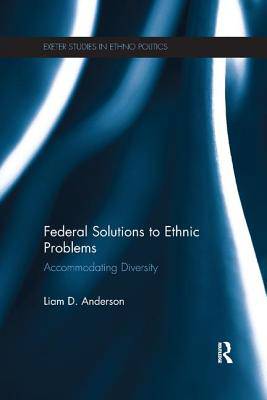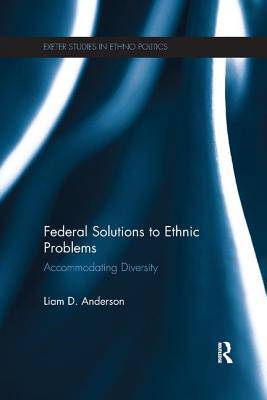
- Retrait gratuit dans votre magasin Club
- 7.000.000 titres dans notre catalogue
- Payer en toute sécurité
- Toujours un magasin près de chez vous
- Retrait gratuit dans votre magasin Club
- 7.000.0000 titres dans notre catalogue
- Payer en toute sécurité
- Toujours un magasin près de chez vous
Description
Exploring five distinct models of federal arrangement, this book evaluates the relative merits of each model as a mechanism for managing relations in ethnically divided societies. Two broad approaches to this issue, accommodation and denial, are identified and, from this, five distinct models of federal arrangement are derived. The models; ethnic, anti-ethnic, territorial, ethno-territorial, and federacy, are defined and then located within their broader theoretical tradition.
Detailed case studies are used to evaluate the strengths and weakness of each model and highlight patterns in the success and failure rates of the universe of post-1945 federal arrangements. From this it is clear that two forms of ethnically defined federal arrangement - federacy and ethno-territorial federalism, are associated with low failure rates, while ethnic federalism has enjoyed a far higher rate of failure. The reasons for this are examined and the implications of this for the design of federal systems in ethnically divided societies are assessed.
Federal Solutions to Ethnic Problems: Accommodating Diversity advances a new argument within the field of comparative politics, that certain forms of federal arrangement are systematically more successful than others in ameliorating ethnically conflicted societies and is essential reading for students and scholars with an interest in politics and the Middle East.
Spécifications
Parties prenantes
- Auteur(s) :
- Editeur:
Contenu
- Nombre de pages :
- 320
- Langue:
- Anglais
- Collection :
Caractéristiques
- EAN:
- 9781138108554
- Date de parution :
- 24-05-17
- Format:
- Livre broché
- Format numérique:
- Trade paperback (VS)
- Dimensions :
- 156 mm x 233 mm
- Poids :
- 452 g

Les avis
Nous publions uniquement les avis qui respectent les conditions requises. Consultez nos conditions pour les avis.






